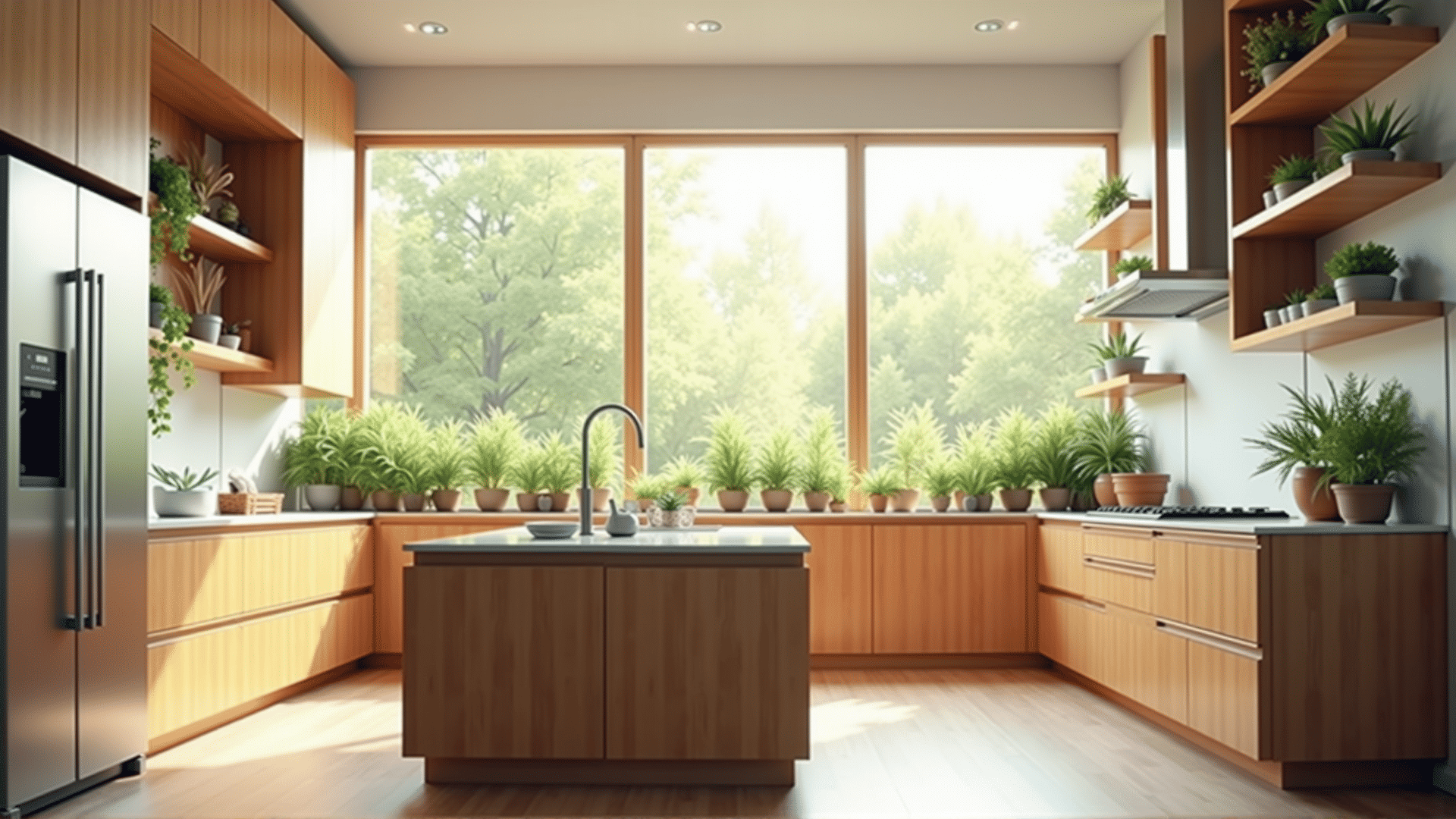In recent years, the push for sustainability has permeated various aspects of our lives, including how we design and equip our homes. The kitchen, as a central hub of daily activity, presents a unique opportunity to embrace eco-friendly practices. By focusing on sustainable materials and energy-efficient appliances, one can create a kitchen that not only minimizes environmental impact but also promotes a healthier lifestyle.
Sustainable Materials
The foundation of an eco-friendly kitchen begins with the choice of materials. Opting for sustainable options can significantly reduce the kitchen’s carbon footprint. Reclaimed wood is a popular choice for cabinetry and flooring, offering a rustic charm while utilizing existing resources rather than depleting new ones. Similarly, bamboo is a rapidly renewable material that suits various applications, from cutting boards to cabinetry, thanks to its durability and aesthetic appeal.
Countertops made from recycled materials—such as glass, paper, or aluminum—combined with resin provide an eco-conscious alternative to traditional surfaces like granite or marble. These recycled countertops are resilient, come in a variety of colors and patterns, and boast a lower environmental impact.
Additionally, for those keen on modern aesthetics, using concrete can work wonders. Opt for concrete that utilizes fly ash as a substitute for a portion of the cement, which not only makes it more sustainable but also enhances its strength and durability.
Energy-Efficient Appliances
Selecting energy-efficient appliances is crucial to minimizing energy consumption in the kitchen. Look for appliances that have earned the ENERGY STAR label, indicating they meet energy efficiency guidelines set by the U.S. Environmental Protection Agency. Modern energy-efficient refrigerators, ovens, dishwashers, and microwaves substantially reduce electricity consumption, leading to lower utility bills and reduced environmental impact.
Induction cooktops, which heat pots directly through magnetic induction, offer another energy-saving solution. They use less energy compared to conventional gas or electric stoves by heating food faster and reducing waste heat that would otherwise warm the kitchen environment unnecessarily.
Water Conservation
Water scarcity is a growing concern, making water conservation an essential part of an eco-friendly kitchen. Installing a low-flow kitchen faucet can significantly reduce water usage without sacrificing performance. Additionally, consider investing in a water filtration system that reduces reliance on bottled water, thus cutting down plastic waste.
A modern, efficient dishwasher uses significantly less water than hand-washing and can be further optimized by choosing models with economy or quick-wash settings for lightly soiled loads. Remember to wait until the dishwasher is full before running it to maximize water and energy usage.
Waste Reduction and Management
An eco-friendly kitchen also means reducing waste. Composting is a brilliant way to recycle organic food scraps into nutrient-rich soil for gardens. Set up a compost bin in or near the kitchen to encourage easy disposal of food waste. For non-compostable trash, a kitchen design with ample sorting space can facilitate separating recyclables from general waste efficiently, reducing landfill contributions.
Furthermore, consider adopting a zero-waste mindset by using reusable products such as cloth towels instead of paper towels, and glass storage containers in place of plastic ones. Selecting products with minimal packaging at the store can also significantly cut down waste.
Final Touches
No sustainable kitchen is complete without adding eco-friendly touches. This could include LED lighting, which is far more energy-efficient than traditional lighting options, and selecting paints and finishes with low Volatile Organic Compounds (VOCs) to improve indoor air quality.
Incorporating houseplants in the kitchen can help purify air and add a touch of green, reinforcing the kitchen’s sustainable ethos. Choose plants that thrive in kitchen environments, like herbs which provide both practical and aesthetic benefits.
By carefully selecting eco-friendly materials, appliances, and practices, we can design kitchens that are both beautiful and considerate of the environment. Focusing on sustainability not only benefits the planet but also fosters a healthier and more cost-effective lifestyle for everyone involved.
